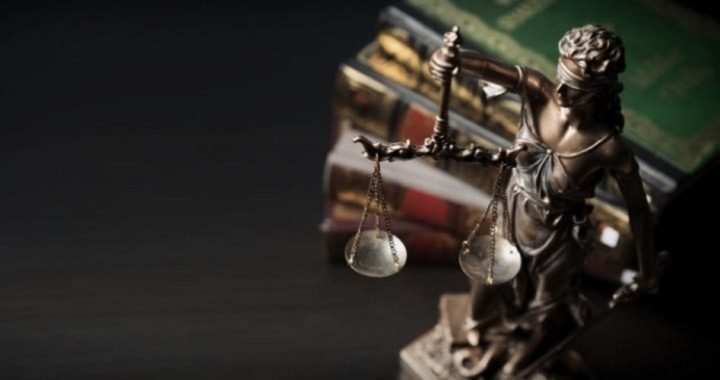
It was revealed this week that former FBI Director James Comey will not be prosecuted for leaking classified memos to the media, in stark contrast to the punishment meted out to military personnel who have been charged for such activity.
Michael Horowitz, the inspector general for the U.S. Department of Justice, reportedly referred Comey to the William Barr-led Justice Department for prosecution, but they are opting not to prosecute Comey. John Solomon of The Hill has reported, “Prosecutors found the IG’s findings compelling but decided not to bring charges because they did not believe they had enough evidence of Comey’s intent to violate the law, according to multiple sources.”
It is hard to imagine a more clear-cut case of intent in that Comey deliberately leaked his memos of private conversations with President Donald Trump to the media. Comey wrote in his memos that Trump asked Comey for loyalty, an allegation that Trump has denied. After Trump fired Comey on May 11, 2017, Comey gave the memos to a friend, Daniel Richman, so he could then leak them to the media. Richman turned the memos over to the New York Times, which then used them to publish a story on May 16. Comey has been very explicit that he did so to generate the appointment of a special counsel. On May 17, Comey’s friend Robert Mueller was named to the position of special counsel by Assistant Attorney General Rod Rosenstein.
In other words, Comey very intentionally took classified material, and used it to get the Justice Department to name a special counsel, a man who was a long-time friend and associate, as it turns out. Yet none of this shows criminal intent, according to the attorney general, William Barr — or at least he is not going to bring charges against Comey.
Of course, one might recall that Comey used this same reasoning in July 2016 to clear former Secretary of State Hillary Clinton of criminal wrongdoing when she violated the law by keeping classified documents on her private server — that she had no criminal intent.
Both of these cases provide strong evidence that there are certain individuals in America who are above the law, such as Comey and Clinton. Another example that could be offered would be retired four-star General David H. Patraeus, who gave highly classified journals to his biographer (with whom he was engaged in an affair). Patraeus pled guilty — to a misdemeanor.
But when it comes to military personnel, such light sentences — or no sentences at all — are not the norm. In an interview with The New American, retired Air Force Chief Master Sergeant Don Crosson, who spent 28 years in active duty and who had a Top Secret clearance, explained that even if military information placed in their care was stolen or lost, a military person could be still be charged with a crime in military courts. Crosson, who spent 10 years as a combat controller — the Air Force equivalent of the Navy SEALs — noted the case of a sailor, Kristian Saucier, who spent a year in federal prison, simply for using his cellphone to take a photograph of the inside of his nuclear attack submarine, and sending it to his mother.
Saucier, a machinist’s mate aboard the USS Alexandria, who was eventually pardoned by President Trump, admitted he was wrong. “I’ve always contended that I made a mistake by mishandling classified information. My complaint is other people weren’t held to the same standard.”
Saucier was convicted of a count of unauthorized retention of national defense information, a felony. He began his prison sentence in October 2016 and received an “other-than-honorable” discharge from the Navy. This will also limit his eligibility for veteran benefits.
Saucier is not alone among military personnel in facing such charges, charges that Clinton and Comey are apparently skirting. In the case of United States v. McGuinness (1992), a Navy operations specialist spent two years in confinement, along with additional penalties, because of “classified items” which were in his home unsecured. He had not disseminated the items, but the U.S. Court of Military Appeals rejected the defendant’s claims, arguing that the Espionage Act of 1917 included allowing punishment for simply losing classified materials through “gross negligence.”
And there have been other cases, as well.
So it is clear that both Comey and Clinton were given passes for actions that have landed others who are not well-connected liberals in prison. Some believe that A.G. Barr is going after bigger offenses by Comey — particularly his role in the FISA application process concerning the Russia “investigation” — than simply his dissemination of a memo to the New York Times.
Perhaps that is the case. But if Comey is not punished for that, either, it will provide even more evidence that what the pigs said in George Orwell’s classic tale Animal Farm is true in America today: “All animals are equal, but some are more equal than others.”
Photo: simpson33 / iStock / Getty Images Plus
Steve Byas is a history professor and the author of History’s Greatest Libels. He can be contacted at [email protected]



